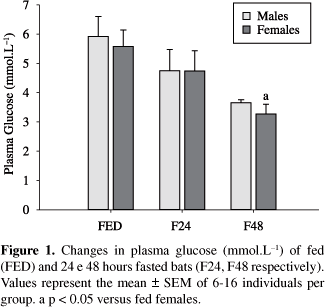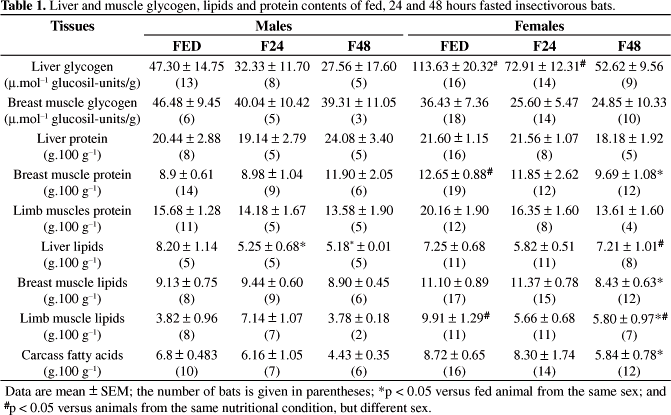Metabolic adaptations induced by 24 and 48 hours of fasting were investigated in male and female insectivorous bats (Molossus molossus Pallas, 1766). For this purpose, plasma glucose, non esterified fatty acids (NEFA), glycogen, protein and lipids concentrations in liver and muscles were obtained. Data presented here demonstrate that fed bats showed plasma glucose levels similar to those reported for other mammal species. In response to fasting, glycemia was decreased only in 48 hours fasted females. Plasma NEFA levels were similar in both sexes, and did not exhibit any changes during fasting. Considering the data from energy reserve variations, fed females presented an increased content of liver glycogen as well as higher breast muscle protein and limbs lipids concentrations, compared to fed males. In response to fasting, liver and muscle glycogen levels remained unchanged. Considering protein and lipid reserves, only females showed decreased values following fasting, as seen in breast, limbs and carcass lipids and breast muscle protein reserves, but still fail to keep glucose homeostasis after 48 hours without food. Taken together, our data suggest that the energy metabolism of insectivorous bats may vary according to sexual differences, a pattern that might be associated to different reproduction investments and costs between genders.
plasma glucose; glycogen; insectivorous bats; metabolism; Molossus molossus



